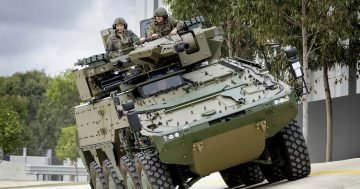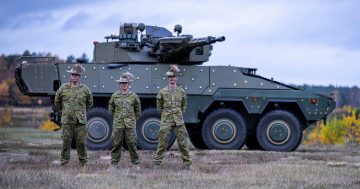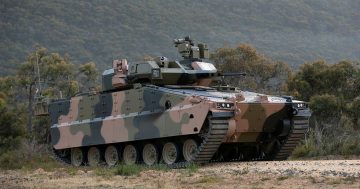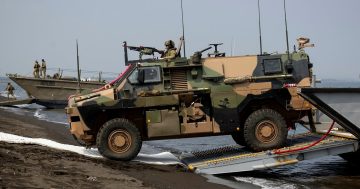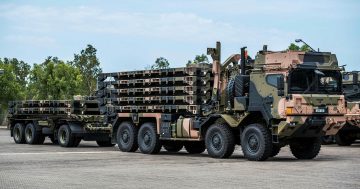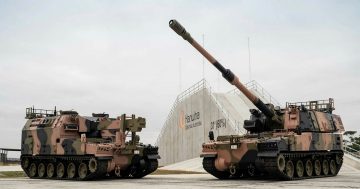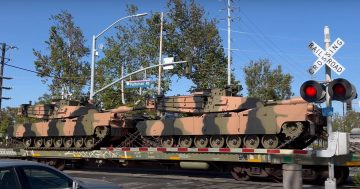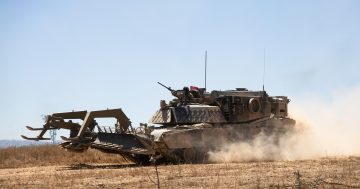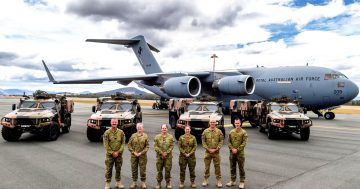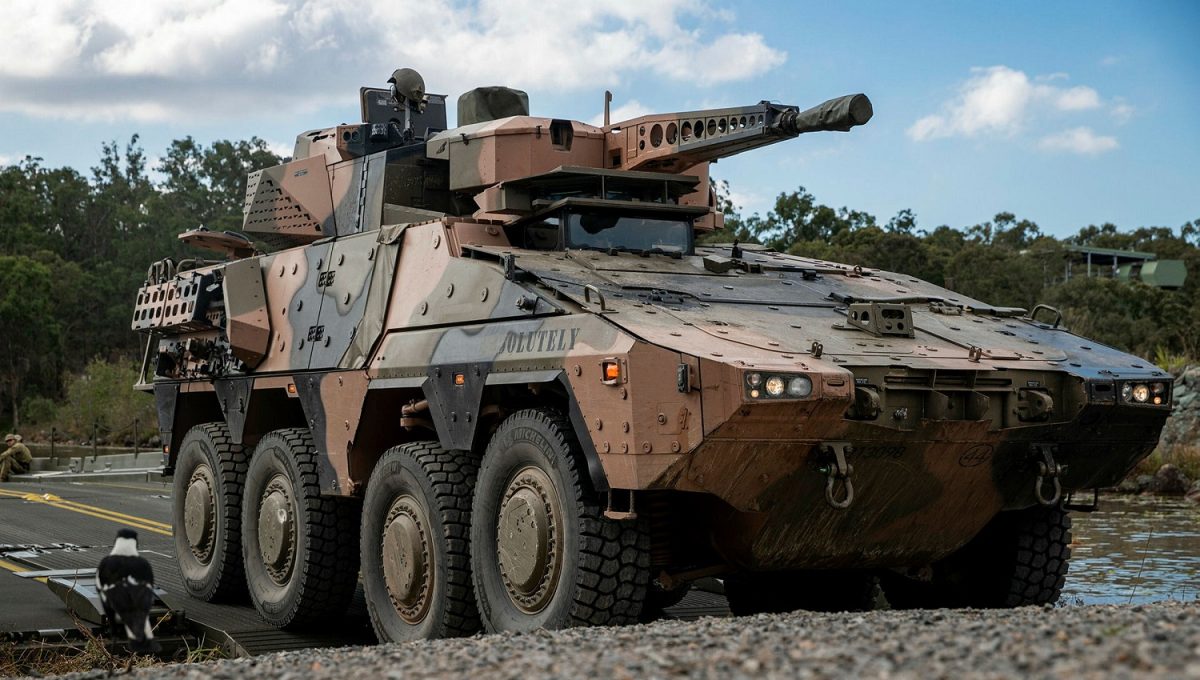
A Boxer Combat Reconnaissance Vehicle of the Australian Army’s 2nd/14th Light Horse Regiment crosses a pontoon bridge during a recent exercise. Photo: ADF.
Prime Minister Anthony Albanese has confirmed that the German Army will buy 100 Australian-built Rheinmetall Boxer armoured vehicles.
During a brief statement on the tarmac after arriving in Berlin overnight, the Prime Minister confirmed the deal for the vehicles would be signed on Monday morning (10 July) in Germany.
“This will be one of our largest ever exports,” he said. “It will guarantee that the 1000 jobs that are there in Queensland will go into the future and will be worth in excess of $1 billion for the Australian economy.”
As reported by Region in March, the armoured vehicles for Germany will be manufactured using Australian steel from the Illawarra-based Bisalloy Steel at Rheinmetall Australia’s Military Vehicles Centre of Excellence (MILVEHCOE) at Ipswich near Brisbane.
The deal follows a visit to Australia in March by Germany’s Parliamentary State Secretary to the Federal Minister of Defence Thomas Hitschler to see the Boxer in action and conduct initial negotiations.
The Australian-built Boxers will be known as Heavy Weapon Carrier Vehicles in German service. They will supplement large numbers of new tanks and other armoured vehicles the German Army is buying as it builds up its military in response to Russia’s invasion of Ukraine and growing threats to European stability.
Rheinmetall Australia is already building 186 eight-wheel drive Boxer Combat Reconnaissance Vehicles at the MILVEHCOE for the Australian Army, which selected the Boxer in 2018 for Project LAND 400 Phase 2. The first 25 Boxers were built by Rheinmetall in Germany while the MILVEHCOE was being constructed, and the remaining 186 vehicles are now being built at Ipswich.
Boxers are able to carry about eight troops via a rear ramp, and are available with a wide variety of different turrets fitted with machine guns, remotely operated weapons stations, anti-armour missiles, or large long-range artillery cannons.
It is unclear how the German Boxers will be equipped at this stage.
Rheinmetall has also pitched its KF41 Lynx for the Army’s LAND 400 Phase 3 Infantry Fighting Vehicle (IFV) requirement, which it plans to manufacture at MILVEHCOE.
Formerly thought to be a requirement for up to 450 vehicles, Phase 3 was dramatically scaled back in April’s Defence Strategic Review to just 129 as part of a larger shift towards acquiring longer-range surface and air-launched strike weapons.
This meant Rheinmetall and its competitor for Phase 3, Hanwha Defence Australia with its AS21 Redback, have had to resubmit their bids for the smaller number of vehicles. If successful, Hanwha will build the Redbacks at a new facility it is constructing at Avalon near Geelong.
Regarding the Boxer sale to Germany, the prime minister said it will boost increase Australia’s defence capability and economy. “This is a great outcome,” he said. “And it’s the first outcome of quite a few that we have ready to announce tomorrow with our friends here in Germany.
“And I thank (German) Chancellor Scholz for the very kind invitation to come here to commemorate these arrangements that we will enter into tomorrow.”
The prime minister’s visit to Berlin comes as part of a larger trip where he will also attend the NATO summit in Vilnius, Lithuania on Tuesday and Wednesday.
He is also expected to meet with US President Joe Biden and UK Prime Minister Rishi Sunak on the sidelines of the summit to continue to progress the AUKUS construct, and possibly make an announcement about additional aid to Ukraine.
Original Article published by Andrew McLaughlin on Riotact.


